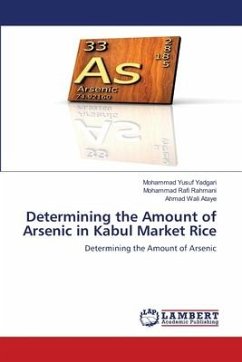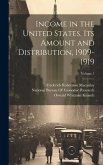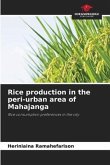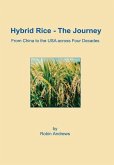The introduction of arsenic, which is represented by the symbol "As" in the periodic table, is one of the heavy metals that can be found in soil, water and food. This substance is one of the xenobiotics and if it is ingested, it will have adverse health consequences. Arsenic is classified as a carcinogen. Rice, which is one of the most consumed food products in the world, has a special tendency to accumulate arsenic in itself, so the continuous consumption of rice, especially rice that has more than the permissible limit of arsenic, can cause various health problems for consumers, including cancers. Nowadays, the contamination of rice with heavy metals, especially arsenic, is a trending topic of food safety in the world. It is said that rice is the second most consumed food in the world after wheat, especially in Asian countries. Thus, evaluating the amount of arsenic in imported and local rice in order to confirm or reject their immunity is of vital value for the consumers of this product. The purpose of this research is to determine the amount of arsenic in imported and local rice and compare it with the permissible limit according to international standards.
Bitte wählen Sie Ihr Anliegen aus.
Rechnungen
Retourenschein anfordern
Bestellstatus
Storno






![Tables of Sterling Exchange [microform]: in Which Are Shown the Value of a Sterling Bill, in Dominion Currency, for Any Amount From £1 to £10,000 at E Tables of Sterling Exchange [microform]: in Which Are Shown the Value of a Sterling Bill, in Dominion Currency, for Any Amount From £1 to £10,000 at E](https://bilder.buecher.de/produkte/65/65635/65635680m.jpg)

